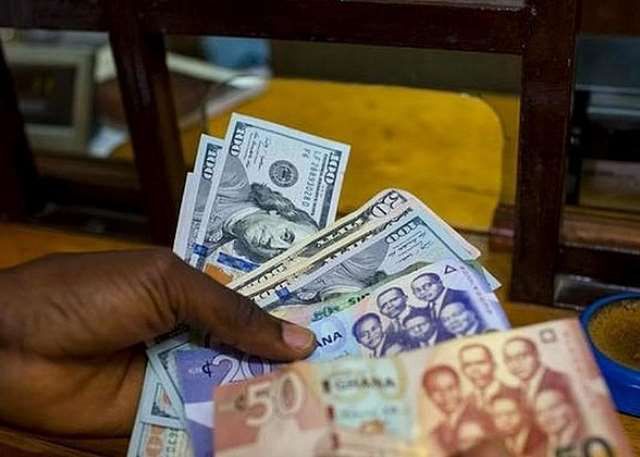The Ghanaian Cedi has experienced a notable appreciation against major international currencies, particularly the US dollar, as of May 2, 2025. This positive trend is reflected across various exchange platforms, including forex bureaus, the interbank market, and money transfer services. The strengthening of the Cedi suggests a potential improvement in Ghana’s economic conditions and foreign exchange reserves. This development could have significant positive implications for import prices, inflation, and overall economic stability in the country.
Analyzing the US dollar exchange rates, Cedirates.com, a trusted source for currency information in Ghana, reported a buying rate of GHS14.01 and a selling rate of GHS14.74. This indicates that individuals could purchase one US dollar for GHS14.01 and sell one US dollar for GHS14.74. Forex bureaus, which cater to a wider range of individual transactions, offered slightly different rates, with a buying rate of GHS14.30 and a selling rate of GHS15.10. This difference in rates between Cedirates.com and forex bureaus is typical due to varying operational costs and profit margins. The interbank market, where financial institutions trade currencies in larger volumes, displayed the most competitive rates, with a buying rate of GHS14.14 and a selling rate of GHS14.16, reflecting the wholesale nature of these transactions.
Turning to other major currencies, the Cedi also performed well against the British Pound and the Euro. The average exchange rates for the Pound were GHS18.65 for buying and GHS19.77 for selling. Similarly, the Euro traded at an average of GHS15.82 for buying and GHS16.87 for selling. These rates, again observed at forex bureaus, indicate a general strengthening of the Cedi’s position. The Bank of Ghana’s interbank market rates for the Pound and Euro were GHS18.89 and GHS16.07 respectively, further corroborating the trend of Cedi appreciation. The slightly lower selling rate for the Euro on the interbank market compared to the forex bureau rate likely reflects the higher trading volumes and lower margins in the interbank market.
Money transfer services, which play a crucial role in remittances and cross-border transactions, offered competitive exchange rates for the Cedi. LemFi and Afriex, two prominent money transfer operators, provided rates of GHS14.08 and GHS13.32 per dollar respectively for transfers from the US or the UK to Ghana. The difference in rates between the two services likely stems from their respective fee structures, operational costs, and target markets. For Pound transfers, LemFi offered a rate of GHS18.86, while Afriex provided a more competitive rate of GHS17.83. Euro transfers through Afriex were priced at GHS15.15 per euro, while LemFi offered a slightly higher rate of GHS15.95. These competitive rates offered by money transfer operators benefit individuals sending money to Ghana, ensuring they receive a favorable exchange value.
For digital subscriptions to services like Netflix, Spotify, and Apple Music using Visa and Mastercard, the exchange rate stood at GHS15.19 for both card networks. This standardized rate for digital subscriptions likely reflects agreements between the payment processors and the service providers. The rate being higher than the interbank and some money transfer rates suggests a built-in margin for processing fees and other associated costs. This consolidated rate provides a consistent and predictable cost for Ghanaian subscribers to these international digital platforms.
In summary, the Ghanaian Cedi demonstrated significant appreciation against major international currencies as of May 2, 2025. This positive trend was observed across various exchange platforms, including forex bureaus, the interbank market, and money transfer services. The strengthening Cedi suggests a potential improvement in Ghana’s economic environment and its foreign exchange reserves. This positive development could have far-reaching implications for the Ghanaian economy, including lower import prices, reduced inflationary pressures, and increased consumer purchasing power. The competitive exchange rates offered by money transfer operators further benefit individuals sending remittances to Ghana, while the standardized rate for digital subscriptions offers predictability and transparency for users of international online services. The overall picture painted by these exchange rates suggests a positive outlook for the Ghanaian economy and its currency.


